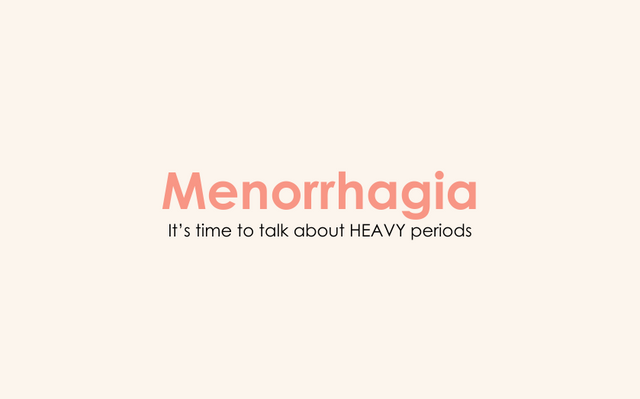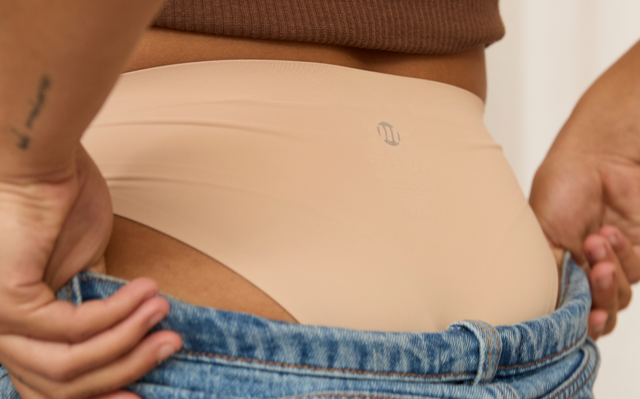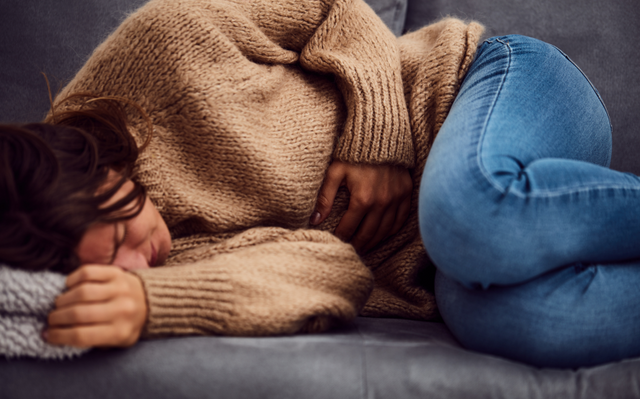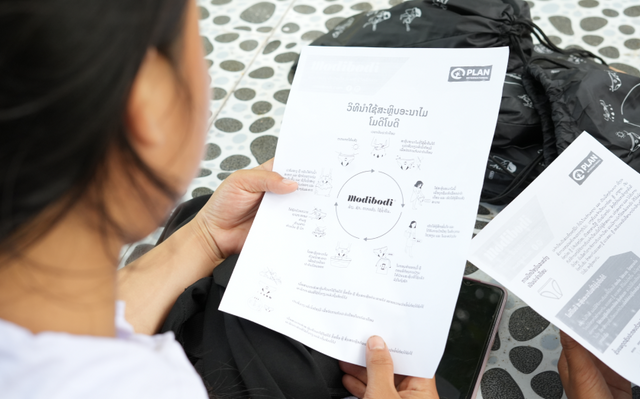It’s time to talk about HEAVY periods, or menorrhagia...a condition that’s not uncommon, that’s hard to pronounce and that’s probably not talked about as often as it should be: menorrhagia.
We’ve chatted to three women who suffer (every single month) to find out what it’s really like, how it affects their lives and what, if anything, they can do about it.
But first, what IS menorrhagia? Menorrhagia is the medical term for heavy periods, which usually refers to people whose bleeding interferes with their daily activities. We’re talking about bleeding that soaks through disposable pads and tampons within an hour, needing to change period products during the night, bleeding heavily for more than 7 to 8 days, passing clots larger than a 50c piece during your period - and it often comes with major cramping. So, it’s a tonne of fun then.
What causes menorrhagia?
Let’s start with the frustrating fact that for half of women with heavy menstrual bleeding, no cause is ever found.
According to the Mayo Clinic, some of the causes of menorrhagia can include:
- Hormone imbalance – which may cause the endometrium (uterine lining) to develop ‘in excess’ then shed via heavy menstrual bleeding. Causes of hormone imbalances may include polycystic ovary syndrome, insulin resistance, thyroid problems and obesity.
- Ovarian dysfunction – if your ovaries don’t release an egg during your cycle, your body doesn’t produce progesterone which can lead to a hormonal imbalance
- Uterine fibroids – non-cancerous tumours of the uterus which typically appear during childbearing years
- Polyps – small benign growths on the uterine lining
- Adenomyosis – a painful period condition where glands from the endometrium become embedded in the uterine muscle
- Cancer – uterine or cervical cancer can cause excessive menstrual bleeding, this is more common post-menopause or in those with a previous abnormal pap smear
- Inherited bleeding disorders – conditions where blood-clotting factors are impaired can cause heavy periods
- Medications – some anti-inflammatory medications, hormonal medications and anti-coagulants can be factor in either heavy or prolonged menstrual bleeding
What can you do about it?
First up, if your heavy periods are interrupting your everyday life or stopping you from certain activities, definitely visit your doctor to have things checked out.
Some heavy bleeding conditions can be treated with medication, others may benefit from the insertion of an Intra-Uterine Device (IUD), and sometimes surgery can relieve symptoms, either temporarily or for good.
As for day-to-day management, Modibodi’s most absorbent period underwear, the Maxi-24hrs, is a comfortable, planet-friendly alternative to maxi pads or super tampons. Featuring a built-in lining which runs from the front to the back waistband for secure protection, it absorbs up to 50ml, which is the equivalent of 10 tampons’ worth.
It’s also important to remember that if you have heavy bleeding every month, especially if your periods also last longer than 7 days, you may become anaemic and need to take supplemental iron to boost your energy – your doctor can easily check this with a simple blood test.
Kim’s story – 23 years for a diagnosis
Kim Smith has suffered with menorrhagia and dysmenorrhea (painful periods) since she started menstruating at 13...she’s now 40.
“As a teenager I knew that the pain I experienced each cycle was not normal...when I had my period I would often be in so much pain that I would miss up to four days of school, the pain wasn’t controlled by over-the-counter medication and at 16 I was put on the pill to try to manage my symptoms. I now know my flow was abnormally heavy, but this wasn’t spoken about at the time.
The only pill that worked was a very high dose so after four years I tried Depo-Provera injections which didn’t work and shortened my cycle and increased the length of my period until I was almost constantly bleeding...so back on the pill I went.
About 5 years later I tried an Implanon implant, but again, no success...and I ended up back on the pill.
Four years ago, I found my sister has a genetic mutation which causes blood clots (discovered after two miscarriages), and not long afterwards my father was rushed to hospital with DVT, and we learned he had not one, but two mutations making him prone to clotting.
These red flags prompted my GP to take me off the pill and test for mutations – and the results showed I had both. This plus my family history meant my risk of clots skyrocketed so I was told I could no longer take hormones of any kind (and I never should have in the first place).
The result? My only options were IUD or surgery, so with COVID-19 in play, IUD it was.
It was only during my consultation with a GP who specialises in IUDs that I discovered nothing about my experiences was normal. She asked me very specific questions about my cycle and the look on her face when I answered...that I could fill a cup four times a day, that I was constantly afraid of breakthrough bleeding, that I had significant clots every day of my period, that my pain was so bad I would nearly pass out...was NOT every woman’s experience. So now I could add menorrhagia to my existing diagnosis of dysmenorrhea.
Since discovering Modibodi, I’ve got my confidence back and breakthrough bleeding is no longer an issue. I feel more secure and might finally even buy a white pair of pants...or skirt.
I want women to know they can speak up. Don’t wait 23 years for a proper diagnosis and effective management of your symptoms like I did. Talk about what’s normal – or not – with your friends and daughters and raise any problems with your GP. If they don’t listen, get a second or third opinion.”
Bec’s story
Bec has struggled with menorrhagia since her period started at 15.
“Having severe heavy bleeding and cramping for several days every month is exhausting and draining. During my period I’m constantly in pain which affects my mood so I feel depressed and down. I find myself snapping at others and I feel deeply sad I can’t do certain activities, and I turn down invitations, avoid going out and just feel like doing nothing.
My menorrhagia is caused by a congenital abnormality I was born with, a bicornuate or ‘heart-shaped’ uterus, which didn’t develop normally in the womb. I found out about it when I was 16 and was diagnosed with menorrhagia a couple of years later after multiple visits to the gynaecologist.
To manage it, I take ibuprofen lysine and menthol patches and use hot water bottles – but not in summer!
Wearing Modibodi helps because it gives me the confidence to go out knowing I won’t be forced to find somewhere to change, and I know that if I choose a heavy absorbency they’ll last all day.
I’d like people to know that it’s not normal to be suffer with such heavy bleeding or severe pain. This condition is mentally draining and stressful and I urge people not to suffer in silence.”
Ruth’s story
Ruth’s menorrhagia became worse more than 10 years after giving birth to her daughter as a result of a challenging combination of endometriosis, hormonal imbalance and polycystic ovarian syndrome.
“Menorrhagia is horrible, scary, overwhelming and exhausting, and it makes me feel awful, drained, empty and vulnerable. I can’t take the pill or any type of hormonal treatment as they make me feel ill, so I just have to suffer through it.
On my heaviest days I sometimes wear two pairs of Modibodi together, or Modibodi plus an additional item for my worst days.
This condition is debilitating and hard, but having great period underwear has been a game changer for me, especially since as a primary school teacher the days can be long and getting to the bathroom to change can be almost impossible, so Modibodi has been a game changer for me to feel more secure. I’m in my 40s now, but so wish I’d found it sooner!
The final word
The above is for informative purposes only and does not constitute professional medical advice. Always consult your doctor to determine the cause of any heavy menstrual bleeding or cramping.
Sources:
Jean Hailes (Heavy bleeding)
The Royal Women’s Hospital (Heavy periods)








